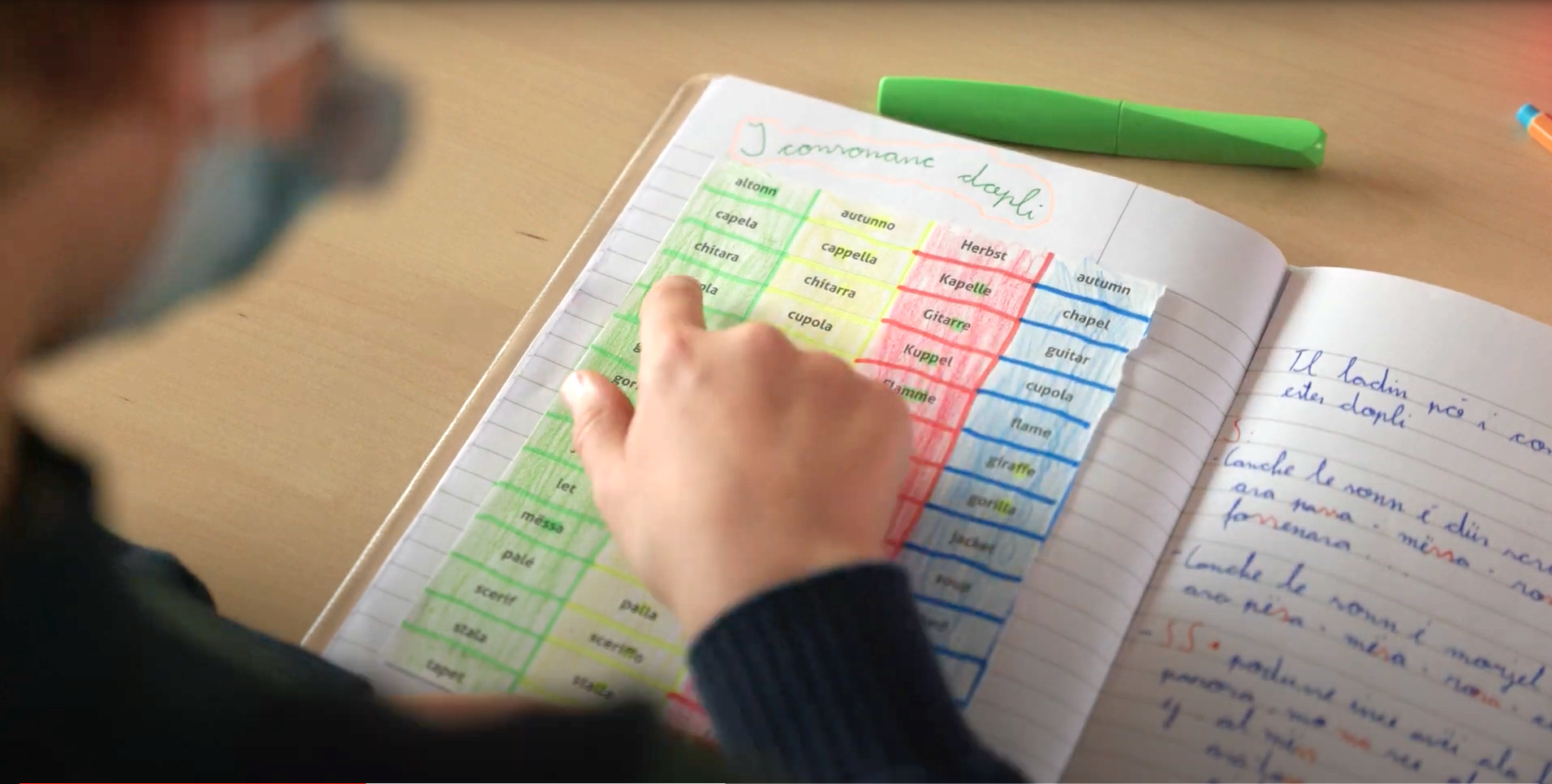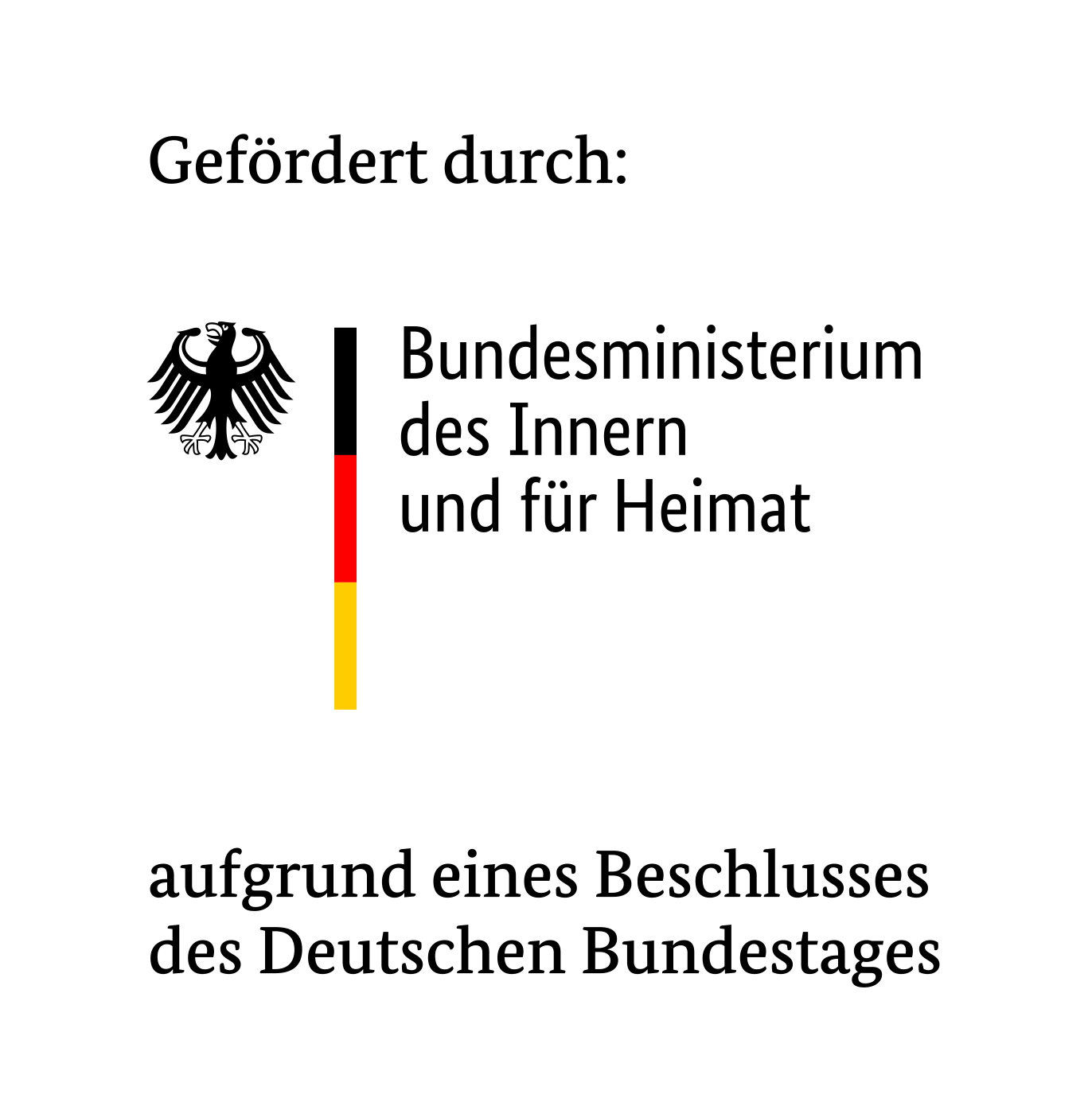
How do multilingual schools work in South Tyrol? New short films provide insights
06.01.2022The region of South Tyrol is not only special in terms of its landscape – with Italian, German and Ladin there are no less than three official languages in some areas. Multilingualism is part of everyday life for most people. The german-speaking and the italian-speaking school systems exist side by side and parents are free to choose the school for their children. The South Tyrolean education system is considered a good example of multilingual education throughout Europe. In order to convey impressions of this to the broader public, the FUEN Working Group for Education, together with filmmaker Lukas Pitscheider, produced two short films in the series "Insights" at the end of last year, which are now being premiered.
What makes your school so unique? This was the question we asked pupils, teachers and school administrators – at the Ladin school in Abtei/Badia in the middle of the Dolomites and at the German-speaking high school for social sciences in Merano/Merano.
Alex from Abtei/Badia, for instance, attends the fifth grade of the Ladin primary school, where lessons are taught multilingually in German and Italian. The pupils are fully aware of the advantages of this multilingual education. "It will make it easier for us in secondary schools and we can become scientists or even astronauts later on," Alex says. "With multiple languages, it's easier to communicate". Ladin is used as a so-called vehicular language – that is, as an aid when someone has difficulties in one of the other languages. After all, around 90 percent of the population in Val Badia speak the minority language Ladin.
The audience also learns about the method of "integrated language didactics": For each topic, students see which words are similar or different in the three to four languages, including English, that the schoolchildren are learning here or have already mastered. "In this way, we encourage the pupils to take up different languages with their respective difficulties," the teacher Miriam Clara explains in the short film. "This helps them learning to switch from one language to the other more quickly."
The situation is somewhat different in Merano/Meran: here the population is divided almost equally between German and Italian speakers, and Ladin plays only a minor role in this area. At the high school for social sciences, which we visited for the production of the film, all subjects are taught in German. "We make the young people aware of the fact that we speak a dialect here and that simply learning the high level language is another language acquisition," explains headmistress Martina Rainer. She and her colleagues also explain why young people consciously choose a German-speaking school and what the "second language year" is all about.
The short films are to be used as part of the FUEN's cultural and educational work.
Background: The short film series "Insights" provides a look behind the scenes in minorities‘ educational institutions in Europe. In 2021, three schools from the German-Danish border region have already been portrayed: the Frisian-Danish primary and community school in Risum-Lindholm, Germany, the German Gymnasium für Nordschleswig in Apenrade, Denmark, and the Danish Gymnasium A. P. Møller Skolen in Schleswig, Germany.

SAJTÓKÖZLEMÉNYEK
- FUEN calls for the inclusion of the Ladin language at the 2026 Winter Olympic Games
- FUEN Urges UN Special Rapporteur to Advocate for a Coherent EU Minority Protection Framework
- FUEN wishes you a peaceful Christmas season, restful days and a bright, hopeful start to the new year!
- FUEN calls on the EU to act over systematic ethnic-based land confiscations in Slovakia
- Women of Minorities conference in Budapest calls for structural change to ensure equal political participation of minority women
- FUEN President Olivia Schubert at UN Forum on Minority Issues in Geneva
- "Laboratory of Peace": 28th Seminar of Slavic Minorities held in European Capital of Culture Gorica/Gorizia
- Equality in Political Participation and Representation: Third “Women of Minorities” Conference to Be Held in Budapest
- FUEN Working Group on Education discusses challenges and future of minority schooling in Europe
- 28th Seminar of Slavic Minorities in Europe to take place in Gorica/Gorizia, Italy














